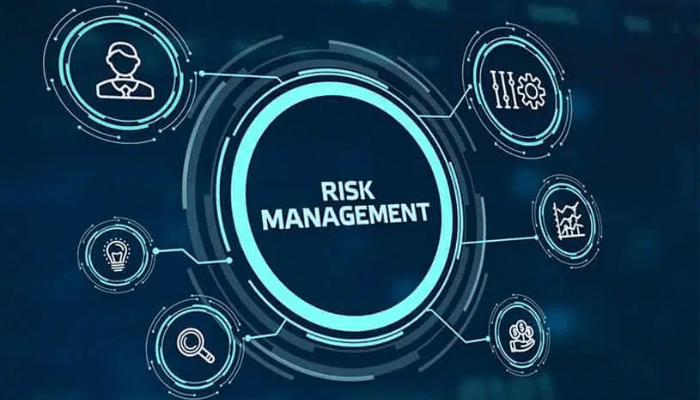CRMI, experts push for institutional reforms, stronger risk governance to strengthen economy
Risk management practitioners, economic experts and industry leaders have called for urgent institutional reforms, stronger data systems, and ethical governance to safeguard Nigeria’s economy from recurring global disruptions and internal vulnerabilities.
The call was made at the 24th Annual International Conference of the Chartered Risk Management Institute of Nigeria (CRMI) held in Lagos, according to a communiqué issued by the institute at the end of the event.
The conference, themed “Global Risks, Local Solutions,” brought together policymakers, regulators, and financial institutions.
In his opening address, Kevin Ugwuoke, president and Chairman of CRMI Council, noted the need for Nigeria to move from reactive policymaking to a proactive, risk-based framework that anticipates and mitigates shocks.
Read also: Stakeholders oppose Lawmakers’ move to create enterprise risk management institute
“Nigeria’s competitiveness and fiscal stability depend on how we anticipate, prepare for, and mitigate shocks,” Ugwuoke said. “When managed intelligently, risk becomes the foundation for sustainable growth. CRMI’s ongoing advocacy, including the National Risk Management Bill before the National Assembly, seeks to institutionalise risk governance across Ministries, Departments, and Agencies (MDAs), with annual risk reporting becoming mandatory for transparency and accountability.”
Delivering a paper on “Global Risk Outlook,” Chinyere Almona, Director-General of the Lagos Chamber of Commerce and Industry (LCCI), identified climate shocks, inflationary pressures, and weak governance as major factors undermining investor confidence and economic stability.
She warned that inequality and low institutional trust continue to widen Nigeria’s poverty gap, with over 133 million Nigerians multidimensionally poor and 30 million facing acute food insecurity.
“Resilience is not built on slogans but on deliberate investments in people, systems, and governance,” Almona said. “Subnational leaders, businesses, and communities must proactively assess and mitigate risks. Effective Nigerian responses must be homegrown and tailored to local realities.”
The Statistician-General of the National Bureau of Statistics (NBS), Prince Semiu Adeniran, also underscored Nigeria’s structural imbalances, revealing that the services sector contributed 55.52 percent of GDP in 2024, followed by agriculture and industry. He noted that the informal sector still accounts for 42 percent of output, limiting fiscal capacity and policy reach.
Adeniran described the ongoing brain drain as a “human capital risk,” noting that Nigeria lost about 3.6 million professionals to migration between 2022 and 2023, weakening productivity and innovation.
“Global risks such as slowing GDP growth, inflation, and migration are affecting Nigeria’s economy,” he said. “Technological disruptions like AI threaten low-skilled jobs, while climate change and insecurity in the Sahel have reduced agricultural productivity. Local solutions include investing in data, formalising the economy, and developing industrial value chains.”
Read also: Risk management professionals hinge capital market future on regulation
He urged policymakers to use the rebased GDP data as a guide for reforms, saying it provides clearer insights for inclusive growth.
During a panel on Food Security and Agricultural Resilience, Olasupo Olusi, Managing Director of the Bank of Industry (BOI) disclosed that the bank is expanding climate adaptation financing and dry-season farming programmes to support smallholder farmers. He said BOI’s cluster-based lending model links farmers with processors and cooperatives to improve market access and credit availability.
Similarly, Oluwaseun Faleye, Managing Director/CEO of the Nigeria Social Insurance Trust Fund (NSITF) represented by Dayo Alao, urged institutions to adapt to fast-evolving global risks such as wars, cyberattacks, pandemics, and climate change.
“Our social and economic resilience depends on strong governance systems, effective data use, and ethical leadership,” he said.
Also speaking, Bonaventure Okhaimo, Managing Director of the National Credit Guarantee Company Limited (NCGC) called for collaboration between chief risk officers and financial institutions to support underserved sectors through inclusive financial risk management.
“By partnering with NCGC, institutions can help drive sustainable support for local businesses and contribute to national economic resilience,” Okhaimo stated.
On regulatory safeguards, Emomotimi Agama, Director-General, Securities and Exchange Commission (SEC) in a presentation titled “Unravelling Ponzi Schemes: Protecting Investors and Strengthening the Regulatory Framework,” urged risk managers to collaborate with regulators to detect and prevent fraudulent schemes.
Read also: Risk management matters: Lessons from AfriLand Towers for African boards
Represented by John Abel Briggs, SEC’s Lagos Controller, Agama noted that the 2025 Investment and Securities Act now prescribes a minimum 10-year jail term or N20 million fine for Ponzi operators, empowering the SEC to freeze assets and work with the EFCC.
“Risk managers must identify early warning signs — unrealistic returns, fake documentation, and referral-based recruitment are key red flags,” Briggs warned.
Regional speakers from Ghana, Benin, and Togo also shared insights on Africa’s vulnerabilities, calling for stronger regional integration and policy stability to navigate global economic shifts.

